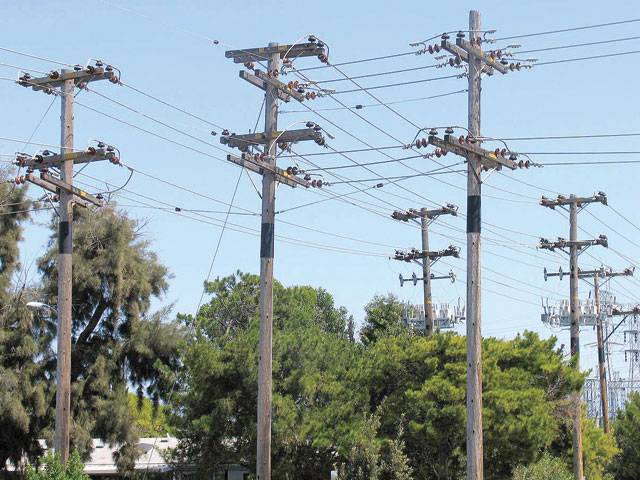ISLAMABAD - The National Electric Power Regulatory Authority (Nepra) has approved Rs3.23 per unit reduction in power tariff, for the Ex-Wapda Distribution Companies, for January under monthly fuel adjustment formula.
The Central Power Purchase Agency (CPPA) in its petition had proposed Rs1.62 per unit reduction in fuel based power tariff for January over the reference fuel charges of Rs9.8670 per unit. However, during the public hearing, presided over by Nepra Chairman Tariq Saddozai, the authority decided to reduce power tariffs by Rs3.23 per unit.
The Nepra chairman showed concern over running of inefficient plants in violation of merit order. He also questioned the provision of gas to the inefficient power plants and running the efficient one on diesel. It also decided to write to the power ministry and the petroleum ministry to provide natural gas to plants on the basis of their efficiency and economy to avoid unnecessary burden to the consumers.
The authority showed disappointment over the delayed and poor accounting practices by the CPPA and distribution companies. CPPA had claimed Rs9.8 billion prior year adjustment of bills 11 years old without certification or evidence. “We will take the legal opinion that whether such a delayed claims can be entertained or not,” the Nepra chairman said.
The Nepra also expressed concern over unfair charges being built into consumer tariff charges on account of Nandipur power project. Saddozai said Nepra had provisionally determined the rate for Nandipur power plant, in March 2016, and since then the government was notifying the provisional tariff for Nandipur power project.
He said that Nandipur is generating electricity on Rs8.29 per unit. Belts has provisionally determined Rs4 per unit cost for Nandipur, however the real cost is well above the determined tariff and as a result over Rs2.5 billion worth of rightful charges could not be allowed in tariff. This was resulting in additional debt servicing cost that would ultimately need to be passed on to the consumers which was very unfair, the Nepra chairman said.
Due to these factors, Nepra worked out tariff cut by Rs3.23 per unit instead of Rs1.62 proposed by the CPPA. This adjustment will be available to the domestic consumers in entire Pakistan, except in Karachi and the lifeline consumers. The reason for not providing relief to the consumers of the K-Electric is that it is a privatised company and distributing its own generated electricity to the consumers in Karachi and is not covered under this determination. Besides the consumers of K-Electric, the relief will also not be available to the lifeline consumers consuming up to 300 units per month, as they are already being provided subsidised electricity. This compensation will be available to consumers in their March 2017 bills.
As per the available data provided by CPPA, the total generated electricity from all sources, during January, stood at 6913.63 Gigawatt hours (GWh) at the total cost of Rs44.2 billion. The CPPA supplied 6631.86 GWh to the distribution companies at a cost of Rs54.7 billion but the DISCOs faced a net loss of 4.08 percent of total supplied electricity.
In January, Central Power Purchasing Agency (CPPA) reported that almost 43.47 percent power generation was produced through furnace oil based plants at rate of 8.83 per unit which was highest share in total power generation. The two cheaper domestic sources Hydel and Natural gas together contributed almost 38.07 pc of energy. The share of power generation through hydel resources dropped to 7.40 percent due to less water releases from dams following canal closures in January. The second largest power generation of about 30.57 percent was based on domestic natural gas at the rate of Rs5.17 per unit.
Similarly, Nuclear based power generation contributed 8.40 percent with a cost of 81 paisa per unit. Re-gasified Liquefied Natural Gas (RLNG) based power generation contributed about 0.65 percent and the cost was Rs7.36 per unit. Diesel based electricity contributed about 5.24 percent power generation with a cost Rs13.72 per unit. 1.54 percent electricity was produced from Wind, 1.06 percent was produced from Bagasse for 4.90 per unit, solar based generation stood at 0.58 percent, whole mixed energy generation was 0.47 percent with a cost of 6.52 per unit. Beside, 34.58 Gwh or 0.50 percent electricity was imported from Iran with a total cost of Rs10.63 per unit.






